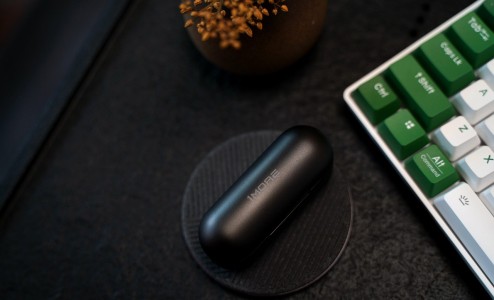In a world filled with constant noise, finding a moment of peace can be a challenge. The cacophony of city life, the hum of machinery, or even the chatter of coworkers can create an overwhelming environment. This is where noise-cancelling earplugs come into play. These innovative devices are designed to help individuals block out unwanted sounds, allowing for a more serene experience in various settings. Whether you’re trying to focus on work, enjoy a good night’s sleep, or simply seek refuge from the hustle and bustle, noise-cancelling earplugs can be a game changer.
Noise-cancelling technology primarily works by using microphones to pick up external sounds. These sounds are then analyzed, and the earplugs generate sound waves that are the exact opposite, effectively cancelling them out. This principle is known as destructive interference. As a result, users can enjoy a quieter environment, whether they are in a crowded café or on a noisy airplane. The effectiveness of this technology varies based on the quality of the earplugs and the level of noise in the environment.
Different types of noise-cancelling earplugs cater to various needs. Active noise-cancelling earplugs utilize electronic components to block noise, while passive earplugs rely on physical materials to create a seal in the ear. Each type has its own advantages. Active earplugs tend to be more effective in environments with consistent, low-frequency sounds, like engine noise. On the other hand, passive earplugs can be more effective in blocking out sudden, high-frequency sounds, like shouting or sirens.
Comfort is another crucial factor when selecting noise-cancelling earplugs. Many users find that traditional earplugs can be uncomfortable after prolonged use. However, advancements in design have led to the creation of earplugs that conform to the shape of the ear, providing a snug fit without sacrificing comfort. Materials such as memory foam or silicone can enhance the user experience, making it easier to wear earplugs for extended periods.
It’s also important to consider the level of noise reduction provided by different earplugs. The Noise Reduction Rating (NRR) is a standard measurement that indicates how much sound the earplugs can block. Higher NRR values indicate better noise cancellation. Users should choose earplugs that match their specific noise environment to ensure maximum effectiveness. For instance, someone working in a construction zone may require earplugs with a higher NRR compared to someone using them in a quiet office.
The versatility of noise-cancelling earplugs makes them suitable for various situations. Travelers often use them on airplanes to reduce engine noise and improve the quality of their sleep. Students might wear them while studying in libraries or during exams to maintain focus. Even individuals who work in loud environments, such as factories or concerts, can benefit from these earplugs. Their ability to adapt to different noise levels is one of their greatest strengths.
Despite their many benefits, there are some considerations to keep in mind. Users should be aware that while noise-cancelling earplugs significantly reduce ambient noise, they do not completely eliminate it. This means that in certain situations, users may still be able to hear important sounds, such as alarms or announcements. Additionally, prolonged use of earplugs can lead to earwax buildup, so regular cleaning and maintenance are essential for ear health.
Safety is another important aspect to consider when using noise-cancelling earplugs. Users should ensure that they can still hear critical sounds in their environment, especially in situations where awareness is necessary. For instance, those who use earplugs while biking or driving should remain cautious and aware of their surroundings. Choosing earplugs that allow for some ambient noise can strike a balance between noise reduction and safety.
As technology continues to evolve, the future of noise-cancelling earplugs looks promising. Innovations in materials and sound technology may lead to even more effective solutions for noise reduction. Research into the effects of noise on health could further emphasize the importance of using such devices in daily life. Additionally, user feedback can drive improvements in design and functionality, making earplugs more user-friendly and effective.
In summary, noise-cancelling earplugs offer a valuable solution for those seeking to escape the clamor of everyday life. Their ability to reduce unwanted noise can enhance focus, improve sleep quality, and provide comfort in various environments. As we continue to explore the impact of noise on our well-being, further research into the design and effectiveness of these devices will be crucial. Embracing advancements in technology and user feedback will ensure that noise-cancelling earplugs remain a vital tool for achieving tranquility in an increasingly noisy world.

